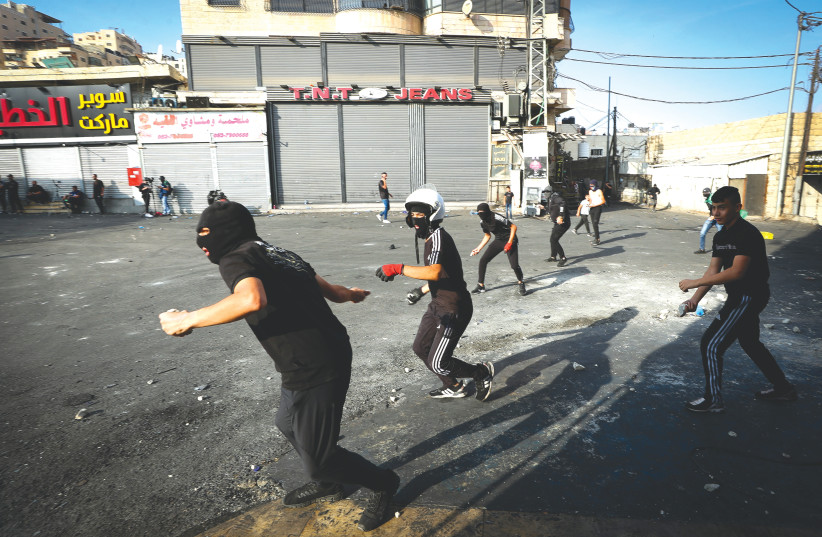Five Palestinian Authority cabinet ministers are scheduled to arrive in Nablus on Monday to examine the situation in the city and its surrounding villages and towns in the aftermath of the closure imposed by the IDF on the area over the past two weeks.
The closure went into effect shortly after Palestinian terrorists shot and killed Staff Sgt. Ido Baruch, 21, from a passing vehicle near the village of Deir Sharaf, near Nablus.
The closure, which has isolated Nablus from its surrounding villages and towns, is part of an attempt by the IDF to curb the activities of the Lions’ Den armed group, which has claimed responsibility for a series of shooting attacks on Israeli soldiers and civilians in the Nablus area over the past few weeks.
Attempts by the PA to talk the gunmen into handing over their weapons and joining the Palestinian security forces have thus been largely unsuccessful. The Lions’ Den group has vowed to continue its attacks in a direct challenge to the PA.
What kind of negative impact does it have on local residents?

Local residents said on Saturday that the closure has had a negative impact on the economic situation in the city. The number of Arab Israelis who used to visit the city for shopping and dining has dropped significantly, they noted.
In Nablus alone, there are approximately 9,000 commercial and 29,000 industrial establishments, according to the Palestinian news agency Khaber Press.
The officials scheduled to visit Nablus are National Economy Minister Khaled Osaily, Transport and Communications Minister Assem Salem, Health Minister Mai al-Kaila, Public Works and Housing Minister Mohammed Ziara, and Labor Minister Nasri Abu Jaish.
The ministers will hold several meetings with leading personalities in Nablus to learn about the needs of the residents. They will then submit a detailed report to the PA government about the situation in the city and discuss ways to help the residents.
The decision to dispatch the ministers to Nablus came after many Palestinians criticized the PA government for its failure to step in to help the residents of the city and its surroundings.
The PA Foreign Ministry announced that it would organize a visit for foreign diplomats to Nablus on Wednesday to brief them on the economic hardships and as an expression of solidarity with the residents.
Several Palestinian factions said they too were planning to step up their protests in the coming days to exert pressure on the IDF to lift the “siege.”
The factions called on drivers to head to the IDF checkpoints and honk the horns of their vehicles to protest the closure. They also urged Palestinians from other parts of the West Bank to descend on Nablus in many buses as part of an effort to “break the siege.”
Some residents complained that the closure has affected the olive harvest season because many villages were unable to reach their fields. In addition, many villages and towns cut off from Nablus are said to be suffering from a shortage of basic food products.
An-Najah University in Nablus also decided to join the protests by launching a campaign titled “Besiege the Siege.”
An-Najah is the largest Palestinian University with nearly 20,000 students and 300 teachers.
The university appealed to the international community and human rights organizations to pressure Israel to lift all the restrictions imposed on the Nablus area.
In a statement issued over the weekend, several Palestinian political groups in Nablus said that the Israeli security measures have affected the educational, health, social and economic situation. The closure aims to “break us and end our existence,” the statement read.
Tayseer Nasrallah, a senior official with the ruling Fatah faction headed by PA President Mahmoud Abbas, said that the Palestinians were determined to force Israel to “end the siege.”
“Breaking the siege imposed on the city is done by going to the checkpoints and opening them with a popular Palestinian will,” Nasrallah told the PA’s Voice of Palestine radio station, adding that thousands of residents are facing restrictions similar to those imposed by the IDF during the Second Intifada.”
